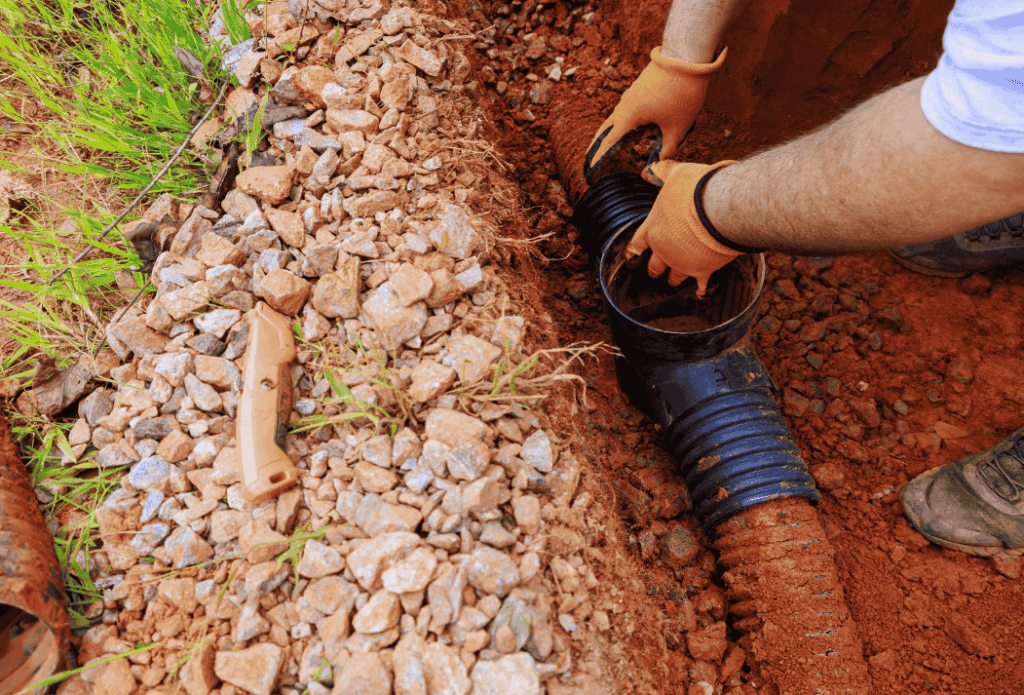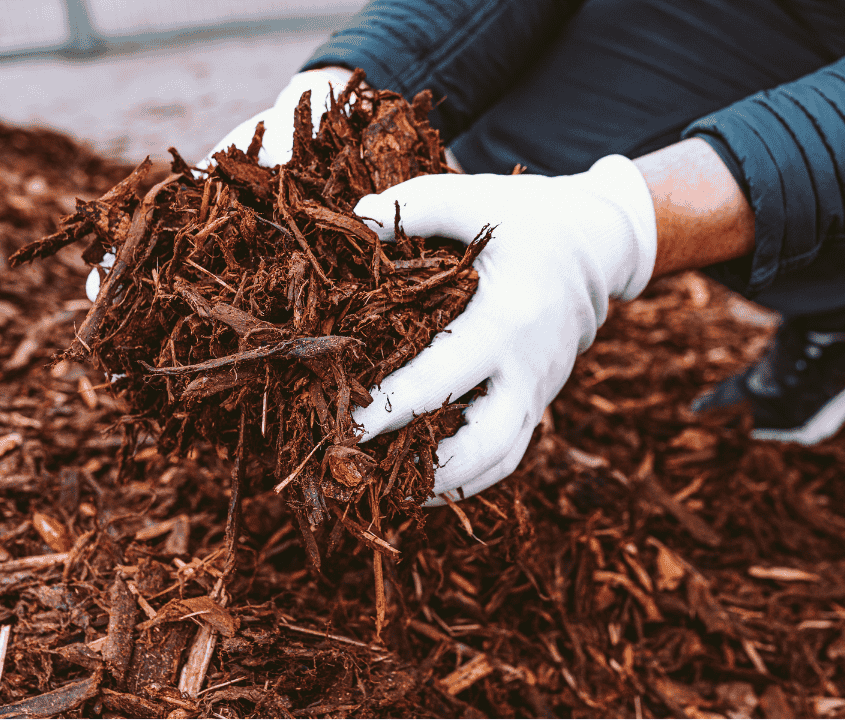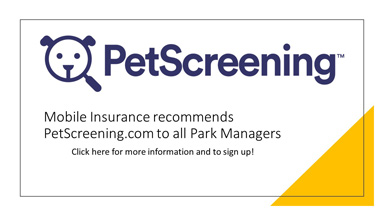
Taking care of maintenance issues in a manufactured home community keeps your community in good working order, increases resident satisfaction, and reduces liability.
Roads and Pavement
The roads in your manufactured home community are one of the most-used elements on the property. Without maintenance, they deteriorate and become a safety issue. When cracks and potholes go unfilled, the roads degrade even faster. These cracks and potholes can cause trips and falls, bicycle and auto accidents, which can lead to expensive lawsuits.
Maintenance Tips:
- Sealcoating: Use a protective liquid sealant to seal the roads and pavement. These sealants protect the roads from water, oil, and UV damage.
- Inspect and Fill: Schedule regular road inspections and fill any cracks to prevent them from widening. These are often filled with an asphalt sealant or emulsion slurry.
- Road Resurfacing: Applying a new layer of asphalt over the current road will extend the life of the road and ensure it is smooth. This is usually done when there is significant wear and tear.
Drainage
It’s important to have drainage systems in place that lead water away from your community’s homes and amenities to prevent standing water and erosion. Standing water can attract mosquitoes and pests and cause mold and other damage to homes and buildings. When drainage systems are poorly designed or blocked, it can damage roads and pavements and cause surfaces to become uneven.
Maintenance Tips:
- Improve Grading: When yards and lots are not properly sloped, water can pool around homes and buildings. Ensure that the land is contoured to guide the water away from homes and to drainage areas. Compacted soil and gravel are typically used to increase the slope and improve grading.
- Clear Ditches and Other Drainage Systems: Clogged and blocked drainage systems can cause a multitude of problems. Regularly inspect and clear ditches, culverts, and drains.
- Upgrade Drainage Systems: If problems with standing water or runoff continue, contact a professional to upgrade your drainage systems. A professional can install French drains or storm drains. If flooding is a concern, a detention pond may need to be added.
Landscaping
It’s important to landscape and ensure your property is well-maintained, not only for aesthetic reasons, but also to prevent safety hazards. Overgrown vegetation and tree roots can damage homes and roads, as well as cause tripping hazards. Overgrown areas can also cause visibility issues and attract pests and snakes. Untrimmed bushes, hedges, and trees are also invitations for vagrants and criminals to invade your property.
Maintenance Tips:
- Trim Trees and Shrubs: Branches that are over roads, power lines, or houses should be trimmed back to prevent damage. Keep shrubs and dense vegetation areas well-maintained. Trees should only be trimmed by a professional. Tree trimming is among the most dangerous of all occupations.
- Maintain a Landscaping Schedule: Create a schedule for seasonal maintenance and inspections. This should include mowing, raking leaves, picking up broken branches, planting new plants in the spring, and trimming/removing trees.

Electrical Systems
Outdated electrical systems can cause fires and be a huge liability for your business. Having a system that is outdated or faulty can also lead to code violations and power outages. Over time, underground electrical lines can deteriorate from roots and moisture. As your community grows, the load capacity may be insufficient for the number of homes on the property.
Maintenance Tips:
- Annual Inspections and Repairs: Each year, hire a professional, qualified electrician to inspect and repair your electrical systems. This will ensure your systems are up to code.
- Educate Residents: Make sure your residents know to report any electrical issues and not to make any DIY repairs. Issues they should report include blown fuses, flickering lights, warm or discolored outlets, burning smells, or loss of power.
Community Amenities
Well-maintained community amenities will help prevent accidents, reduce insurance claims, and keep your residents happy. All communal areas should be checked regularly for damage.
Maintenance Tips:
Playgrounds
- Repair Damaged Equipment: Sharp edges and exposed screws can cut and harm children. Also, replace any equipment that is worn out.
- Replace Mulch or Add Mats: Adding mulch and mats under the playground equipment will add cushioning in case a child falls. Mulch should be around 9 to 12 inches deep. Mats go under swings and slide exits.
- Empty Trash Bins: Trash bins should be emptied regularly to prevent pests and littering.
Pools
- Add a Non-Slip Coating to Concrete: Epoxy or polyurethane coatings are both great for outdoor use and create a non-slip surface. This will prevent slips and falls and also protect the surface of the concrete.
- Repair Fences: Check the fences, latches, and locks, and make repairs when necessary to prevent children from getting in the pool area without supervision. All fences must be 6’ or more and unscalable. Pool area gates must be self-locking.
- Regularly Clean the Pool: Cleaning the pool regularly will prevent damage to pumps and filters. Regularly test the pool’s chemical levels to maintain cleanliness and protect swimmers. Murky pool water is a significant safety hazard, too.

Clubhouse or Office
- Inspect HVAC System: Clean vents and change air filters regularly to maintain airflow and air quality. Have a licensed HVAC technician inspect the system twice a year.
- Create a Cleaning Schedule for Staff: Establish a daily cleaning schedule for bathrooms, counters, and other common areas.
- Test Security Systems: Check security cameras, motion lights, and alarms to ensure safety.

